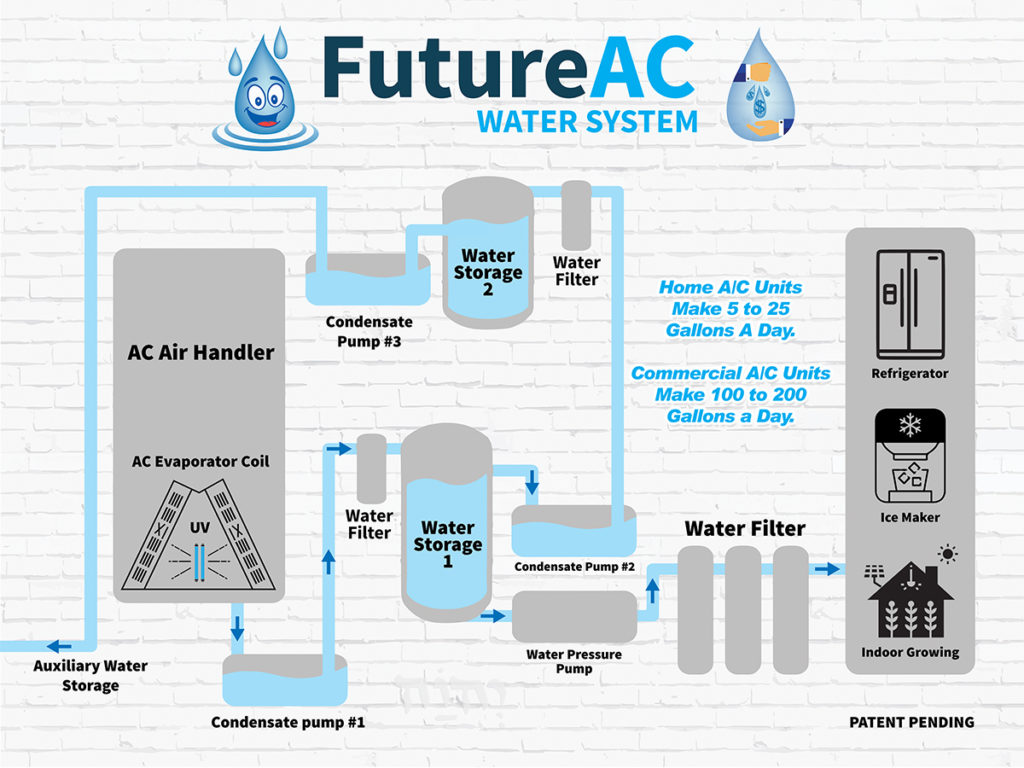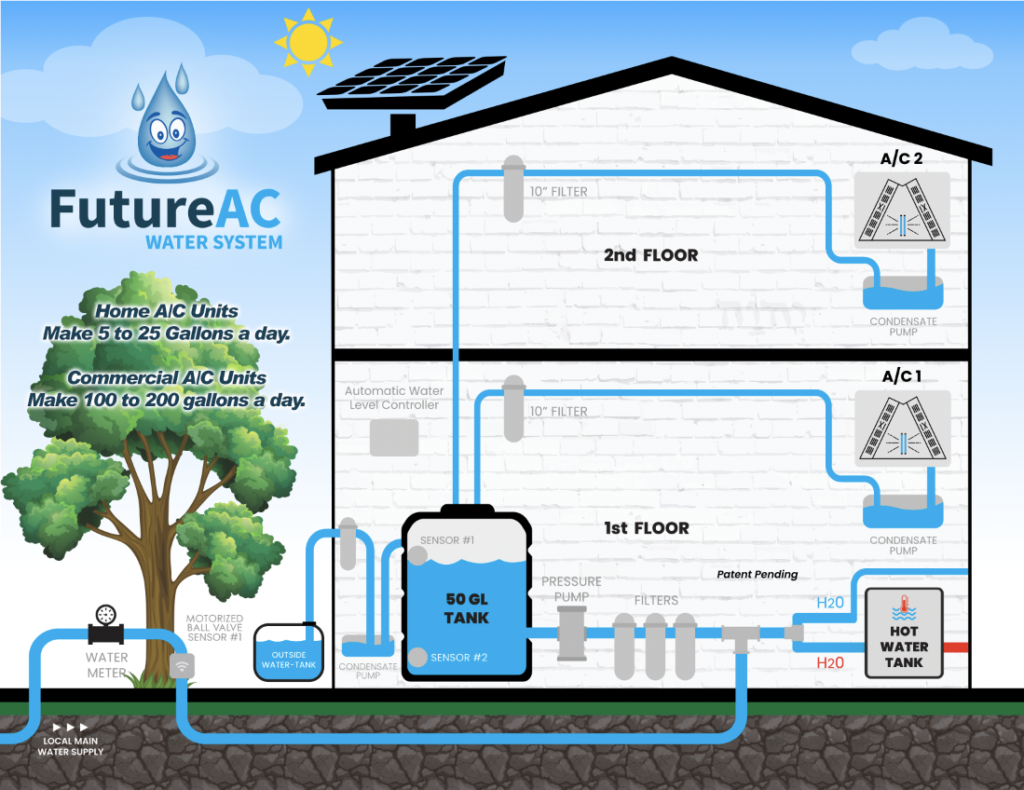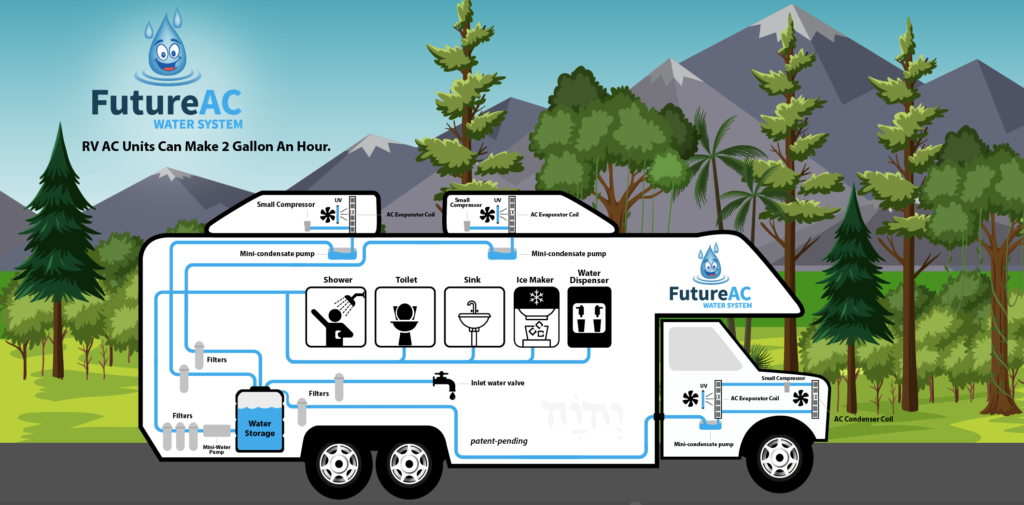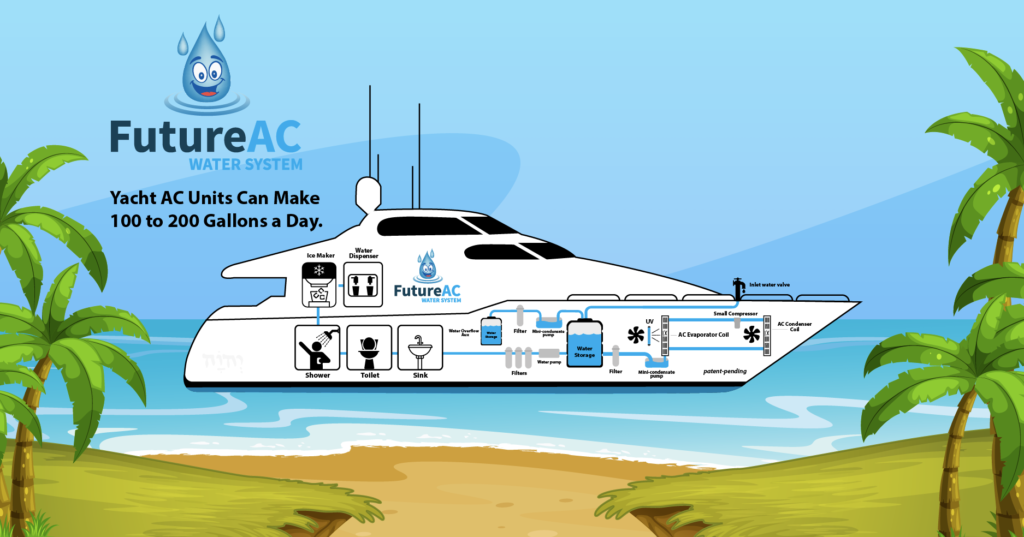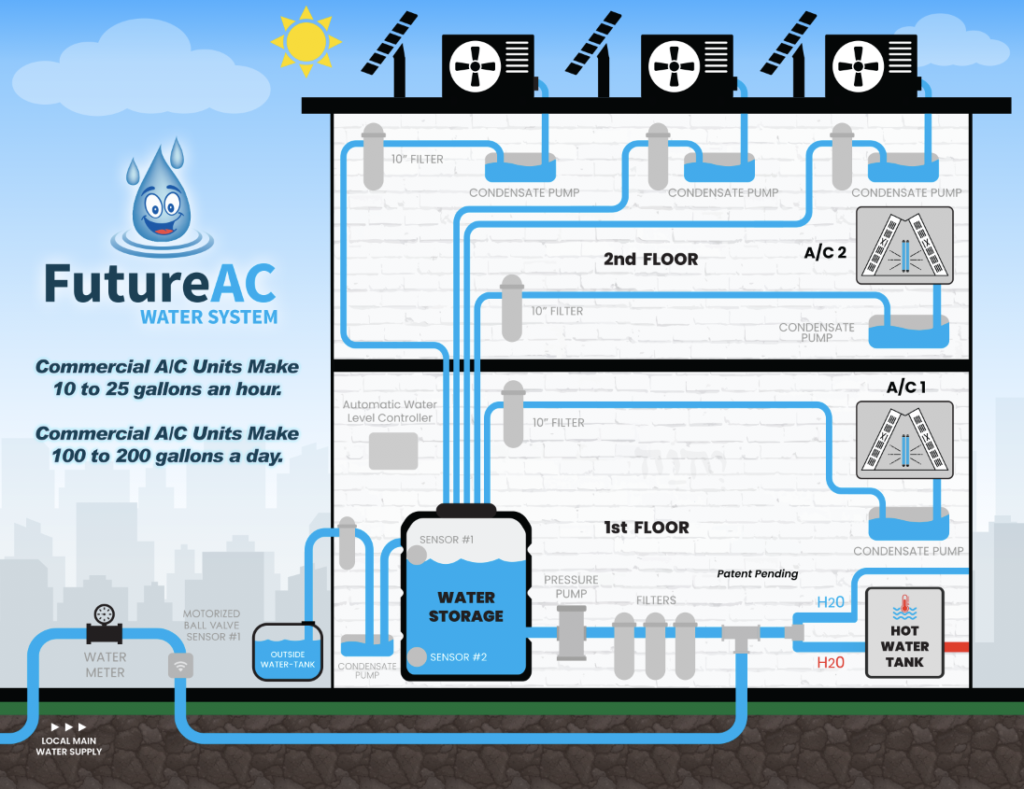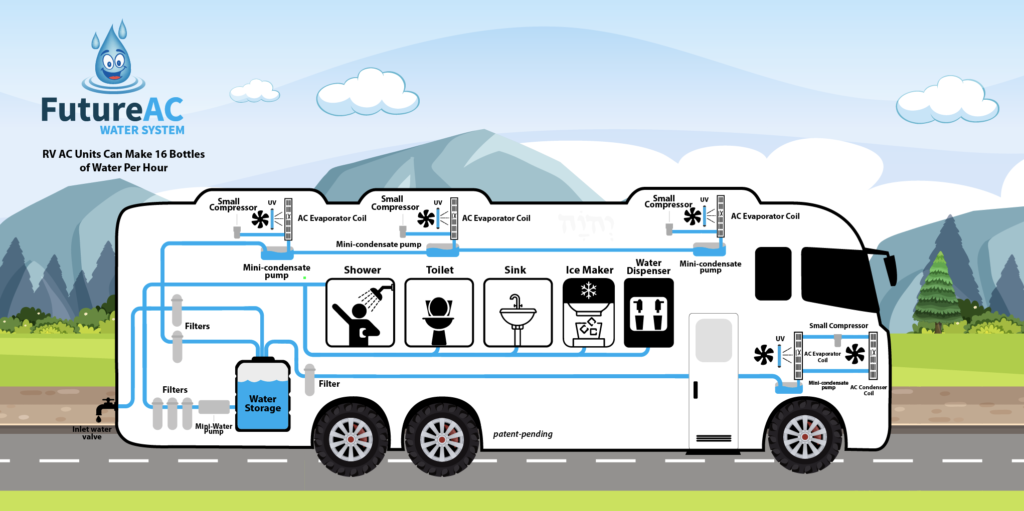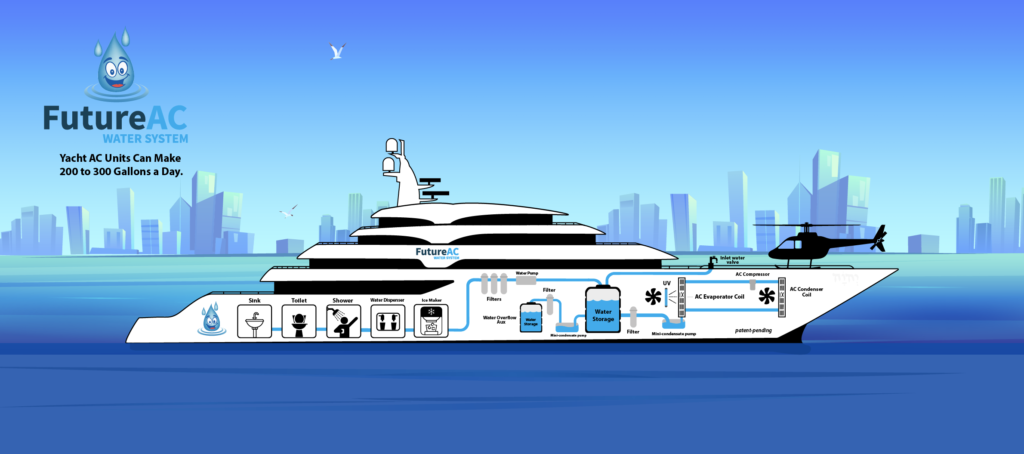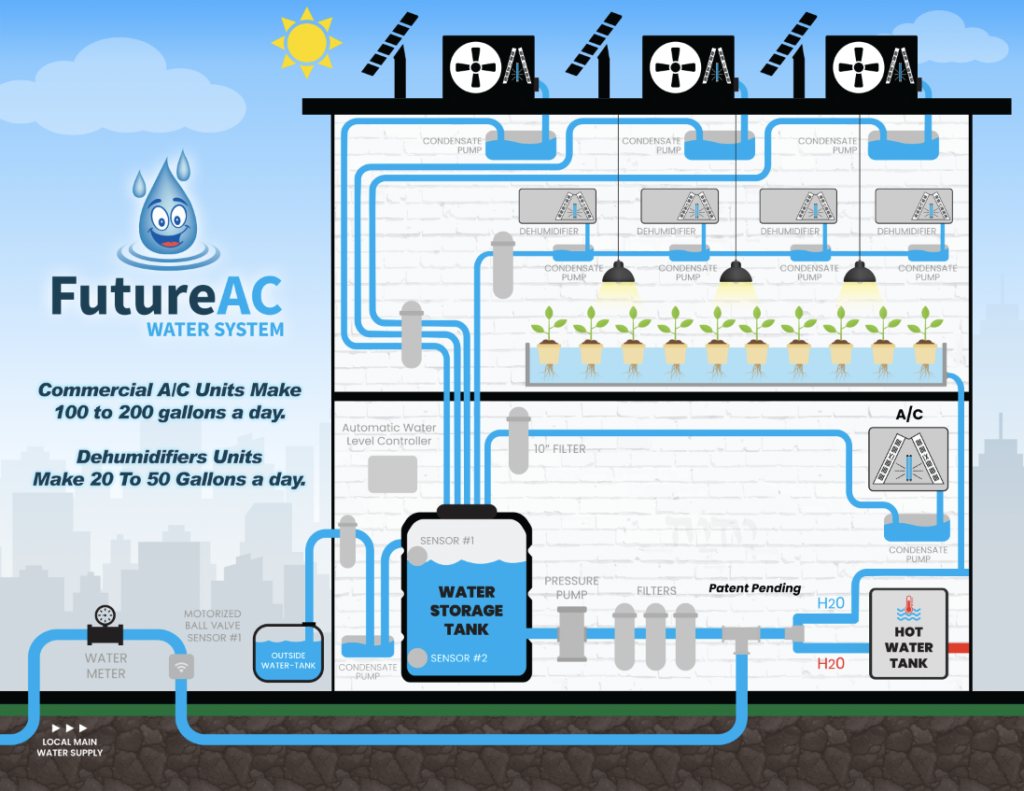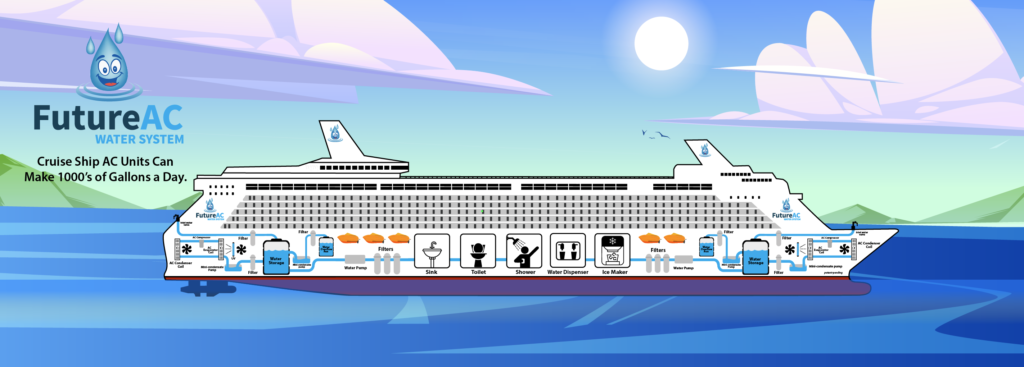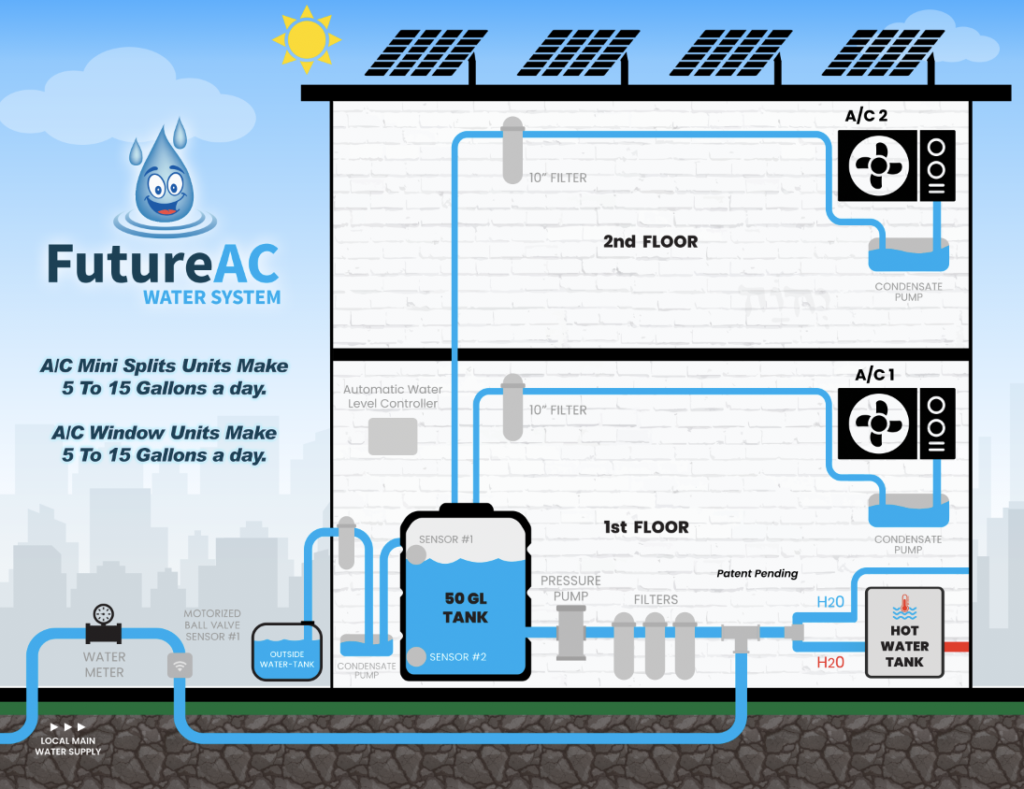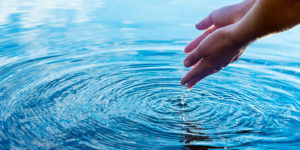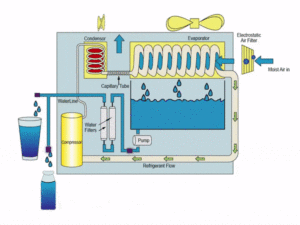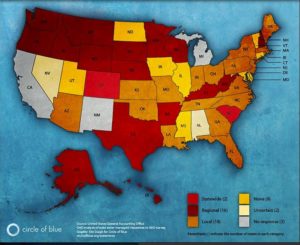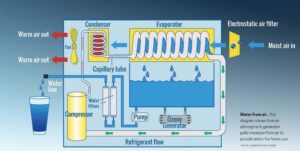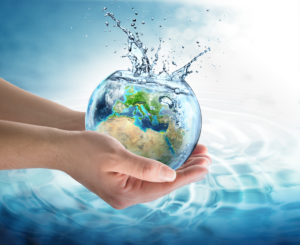Introducing… “The Hilarious Guide to Saving Water in Miami and South Florida!”
A/C Water Recycling with Future AC Water System
Picture this: living in sunny Miami or anywhere across South Florida, where your air conditioner not only keeps you cool but also recycles its own water like a magical, water-saving genie. With Future AC Water System, your A/C transforms the humidity in the air into clean, reusable water for your home and garden. It’s the future of water conservation—fun, futuristic, and uniquely Floridian. Who said saving water in South Florida couldn’t be cool?
Don’t Keep the Water Running while Brushing Your Teeth
Okay, okay, let’s talk about the bathroom routine. We all know that person who enables the water to run endlessly while brushing teeth. Seriously, are they training for an Olympic water-wasting event? Instead, turn it into a game—see who can finish brushing their teeth before the count of five, and the winner gets the title “Water Conservation Champion!”
Don’t Let the Teenagers Do the Dishes
Oh, teenagers, those water-wasting champions! They turn the kitchen sink into their Aqua World Resort, with flowing fountains and tap-dancing faucets. Are they practicing for the next Water Olympics or what?
And let’s talk about their dishwashing skills—45 minutes to do a 10-minute job? Seriously, do they think they’re putting on a dishwashing Broadway show? 🎭 “The Never-Ending Suds” starring only the slowest dish-doer in the world! Bravo, slow clap!
Now, don’t despair! We’ve got a brilliant plan, my fellow water savers. If you want to see real magic, tell a 5 to 12-year-old to put the dishes in the dishwasher. Those little geniuses will astound you with their efficiency! They’re like dishwashing ninjas—swift, precise, and water-wise.
So, the next time you catch those water marathoners, try your hand at negotiation. It might feel like brokering world peace, but it’s worth a shot! 🕊️ “Dear teenagers, how about we save water together and turn off the tap? Let’s show those dishes who’s boss in record time!” 💪
And if all else fails, just put on a water conservation comedy show while they’re doing the dishes. The more laughs, the less water is wasted, right? 😄 “Welcome to the H2O Comedy Hour, starring the Teens of the Drippy Faucet Show! Let’s all laugh and save water, one giggle at a time!”
Make Sure You Fully Close All Faucets
Hey, did you hear about the new faucet Olympics? No? That’s because they don’t exist! Make sure all faucets are fully closed, and we’ll even imagine a little faucet cheerleading squad chanting, “Turn us off, turn us off!” every time you leave the sink.
Check Toilets for Leaks
So, you suspect your toilet might be crying its way through a water leak? No worries, we’ll play detective together! Turn off the water, wait half an hour, and see if the water level goes down. If it does, congratulations, you’ve uncovered the mystery of the weepy toilet! We’ll fix it and make it smile again.
Fixing Leaky Taps – The Water Comedy Show
Have you ever heard the tragic tale of the leaky tap? It’s like a never-ending drippy drama, and you’re the director! But fear not; fixing leaky faucets is more accessible than teaching a goldfish to play fetch. Get that wrench ready, and let’s close the curtain on this watery performance!
Fit Low-Flow Aerators on Your Taps and Showers
Low-flow aerators are like personal trainers for your taps and showers. They’ll ensure your water comes out at just the right pace, and no more excessive showering sessions that make you question whether you’re washing or attempting a rain dance.
Bucket Adventures in the Shower
Ever thought your shower could be an amusement park ride? With a bucket in the shower, you’re riding the “Splash Mountain” of water conservation. Collect that cold water before it gets hot, and with a graceful pour, give it a second life in your water storage. Saving water has never been so entertaining!
Rainwater Collection with AC Water Recycling
Last but not least, the grand finale—rainwater collection with AC water recycling! It’s like saving water gets a standing ovation. Mother Nature will give you a virtual high-five, and you’ll feel like you’re the superhero of water conservation.
Remember, folks, with a touch of comedy and clever tactics; we can conquer even the most water-wasteful challenges! Let’s go out there and be the water-saving heroes our planet needs! 💧🦸♂️💦
Water Conservation in South Florida: Protecting a Precious Resource
At Future AC Water System, we understand the importance of water conservation and the critical role it plays in sustaining our environment, especially in regions like South Florida. As a leading advocate for sustainable practices, we are committed to providing you with comprehensive information on water conservation in this unique and delicate ecosystem. By implementing effective conservation strategies, we can preserve this precious resource for generations to come.
The Importance of Water Conservation
Water scarcity is a global concern, and South Florida is no exception. With its distinct climate and ecosystem, the region faces unique challenges when it comes to water resources. The Everglades, Biscayne Bay, and numerous interconnected water bodies contribute to the ecological balance and biodiversity of South Florida, making water conservation a top priority.
Understanding South Florida’s Water System
To effectively conserve water, it is crucial to understand the intricate water system in South Florida. The region relies heavily on aquifers, which are underground layers of permeable rock that store and transmit water. The Biscayne Aquifer, one of the primary sources of drinking water, needs to be protected from contamination and overextraction.
Implementing Water-Saving Practices
Conserving water starts at home, and there are numerous steps you can take to make a significant impact. By implementing water-saving practices, you not only reduce your ecological footprint but also lower your water bills. Here are some effective measures you can adopt:
a. Efficient Irrigation Techniques
Opt for smart irrigation systems that use weather data and moisture sensors to optimize watering schedules. Drip irrigation, which delivers water directly to the roots, minimizes wastage. Additionally, consider landscaping with native plants that are adapted to the local climate and require less water.
b. Upgrading Fixtures and Appliances
Replace outdated fixtures with low-flow alternatives. Install water-efficient toilets, faucets, and showerheads that meet or exceed WaterSense standards. Similarly, upgrade to energy-efficient appliances like dishwashers and washing machines that consume less water.
c. Rainwater Harvesting
Consider installing rain barrels or cisterns to collect rainwater for non-potable uses such as watering your garden or washing your car. This reduces strain on the municipal water supply and promotes self-sufficiency.
d. Leak Detection and Repair
Regularly check your plumbing system for leaks. Even minor leaks can result in significant water wastage over time. Promptly repair any leaks to conserve water and prevent potential water damage.
Community Involvement and Education
Water conservation is not an individual effort; it requires collective action and awareness. Engage with your local community and spread the word about the importance of water conservation. Participate in events, workshops, and educational programs that promote sustainable water practices. By working together, we can create a lasting impact.
Protecting Water Quality
Conserving water goes hand in hand with protecting water quality. South Florida’s unique ecosystem is home to diverse wildlife, including endangered species. Contamination from pollutants and excessive nutrient runoff can have severe ecological consequences. Here are some steps we can take to preserve water quality:
a. Proper Chemical Disposal
Dispose of household chemicals, pharmaceuticals, and hazardous materials responsibly. Follow local guidelines for proper disposal or take advantage of community collection events to ensure these substances do not enter the water supply.
b. Reduce Fertilizer Use
Excessive use of fertilizers can result in nutrient runoff, leading to harmful algal blooms and water pollution. Follow recommended guidelines for fertilizer application, and consider organic alternatives that are less likely to contribute to nutrient imbalances.
c. Protecting Wetlands and Natural Filters
Wetlands act as natural filters, removing pollutants and improving water quality. Support efforts to restore and protect wetland habitats, such as the Everglades. These initiatives not only preserve water quality but also enhance the region’s resilience against natural disasters like hurricanes.
Conclusion
Water conservation is a responsibility we all share, and in South Florida, it takes on a particular significance due to the region’s unique ecosystem. By adopting sustainable practices, raising awareness, and actively participating in conservation efforts, we can protect our water resources and safeguard the environment for future generations.
At Future AC Water System, we are dedicated to promoting water conservation in South Florida and beyond. Together, let’s make a difference by preserving this invaluable resource.
AC Water Recycling: The Key to Effective Water Conservation
In an era of increasing environmental awareness, the importance of water conservation cannot be overstated. As the global population continues to grow, so does the demand for freshwater resources. To address this pressing issue, innovative solutions are needed to optimize water usage and minimize wastage. One such solution that has gained considerable attention is AC water recycling. By harnessing the power of technology, AC water recycling offers an effective and sustainable method for conserving water in various settings, from residential buildings to commercial establishments. In this article, we will explore how AC water recycling can help with water conservation and how Future AC water systems can help.
Understanding AC Water Recycling
AC water recycling, also known as air conditioning condensate recovery, involves capturing and reusing the water that is generated as a byproduct of air conditioning systems. Traditionally, this condensate water is treated as waste and discarded without consideration of its potential value. However, AC water recycling recognizes the untapped resource within this condensate and repurposes it for various non-potable applications.
The Benefits of AC Water Recycling
Reducing Water Demand: By recycling AC condensate water, significant amounts of freshwater can be conserved. This process minimizes reliance on conventional water sources, such as municipal supplies or underground wells, thus alleviating the strain on local water reserves.
Sustainable Water Management: AC water recycling aligns with sustainable water management practices by promoting the reuse of water resources. By recycling and repurposing condensate water, we can reduce the need for excessive water extraction, contributing to the overall conservation efforts.
Cost Savings: Implementing AC water recycling systems can lead to substantial cost savings for both residential and commercial users. By reusing condensate water for non-potable purposes like landscape irrigation or toilet flushing, property owners can reduce their reliance on costly freshwater supplies, resulting in lower water bills.
Environmental Impact: By minimizing the consumption of freshwater resources, AC water recycling significantly reduces the carbon footprint associated with water extraction, treatment, and distribution. This sustainable approach to water conservation helps mitigate the environmental impact of human activities on local ecosystems.
Applications of AC Water Recycling
AC water recycling systems can be implemented in various settings to maximize water conservation. Some key applications include:
Residential Buildings: In residential complexes, AC water recycling can be integrated into the plumbing systems to provide a sustainable source of water for irrigation, toilet flushing, or laundry purposes. By using recycled condensate water, homeowners can contribute to water conservation efforts without sacrificing comfort or convenience.
Commercial Establishments: From office buildings to shopping malls, AC water recycling systems can be tailored to meet the unique demands of commercial settings. By reusing condensate water for cooling tower makeup, landscape irrigation, or fire suppression systems, businesses can reduce their water footprint and demonstrate their commitment to sustainable practices.
Industrial Facilities: AC water recycling finds valuable applications in industrial sectors as well. Manufacturing plants, data centers, and other large-scale operations can benefit from reusing condensate water for cooling equipment, process water, or facility maintenance.
The Future of AC Water Recycling
As society becomes increasingly focused on sustainability, the adoption of AC water recycling systems is expected to grow. Advancements in technology and increased awareness of the benefits associated with water conservation are driving the demand for innovative solutions like AC water recycling. Moreover, governments and regulatory bodies are recognizing the importance of promoting sustainable practices, providing incentives and support for businesses and individuals who adopt such initiatives.
By implementing AC water recycling systems, we can create a more water-efficient and environmentally conscious future. Through collaborative efforts, including education, awareness campaigns, and policy support, we can accelerate the adoption of AC water recycling and ensure its integration into mainstream water management practices.

